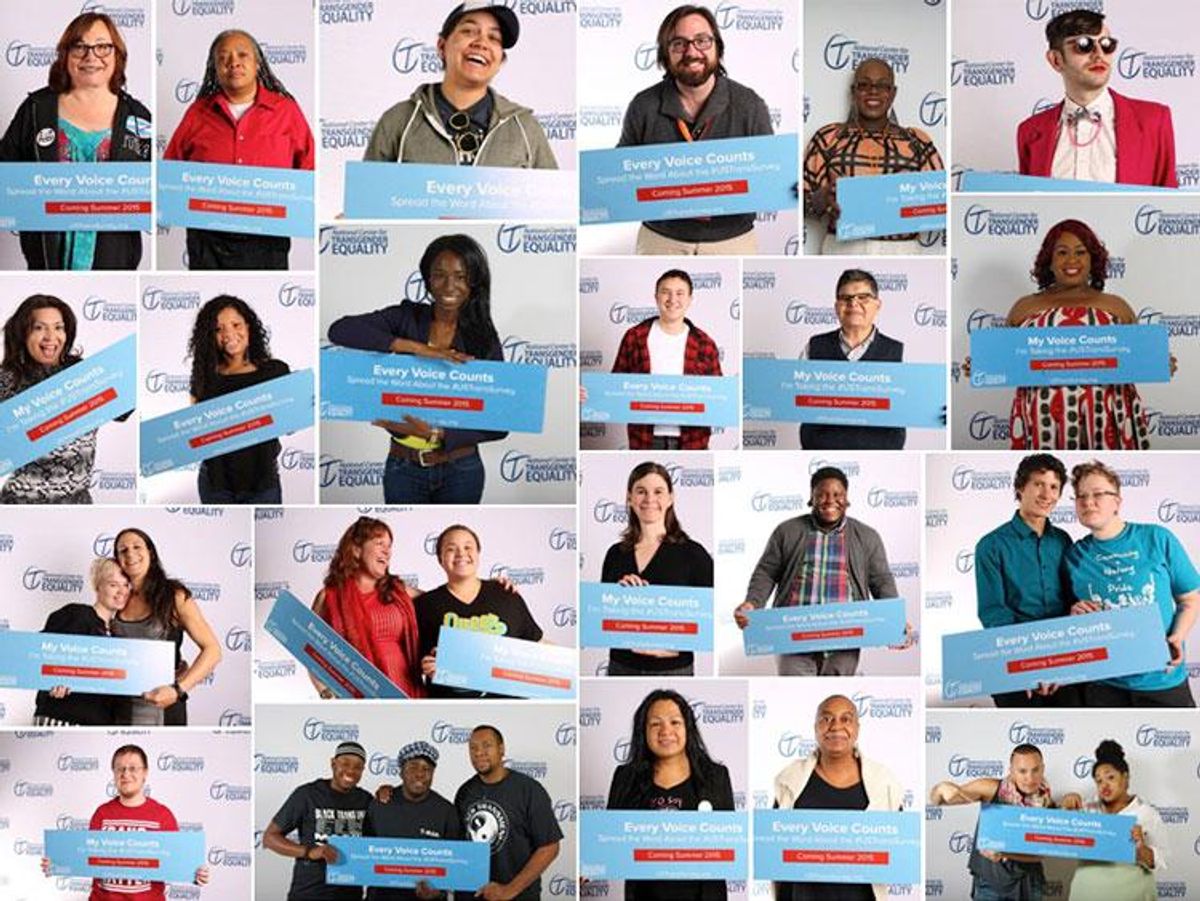Eight days remain for transgender, genderqueer, or nonbinary individuals living in the United States, its territories, or military bases abroad to take the landmark 2015 U.S. Trans Survey, the largest and most comprehensive examination of the experiences and identities of American gender-variant people.
Trans Americans need only visit USTransSurvey.org and locate the words "Complete the Survey Now" to participate. The survey's sponsors hope the information gathered will change policies and perceptions about trans people for decades to come. The survey will close at midnight September 21.
"Trans lives are complex," Sandy James, project manager for the survey, said in a recent phone interview. "The U.S. Trans Survey will help us to change the policies and perceptions that govern trans lives in the country by documenting how we live our lives on a day-to-day basis." The survey, he said, promises to provide "more nuanced understandings of trans people so that we can broaden and strengthen the narratives about trans people."
This year's survey expands the pioneering work of the National Transgender Discrimination Survey, the largest-ever documentation of the bias face by trans Americans. That study was jointly administered by the National LGBTQ Task Force and the National Center for Transgender Equality in 2008-2009 and led to a groundbreaking, much-cited 2011 report called "Injustice at Every Turn" that revolutionized public perceptions of trans people.
Nearly 6,500 transgender and gender-nonconforming people from all 50 states and several U.S. territories shared their experiences of discrimination and trans identification for discrimination survey, as The Advocate explained. The findings of "Injustice at Every Turn" were stark: Transgender individuals were twice as likely as nontrans people to be unemployed. One-quarter said that they lost their jobs because of discrimination based on their gender identity. Trans individuals struggled with low to no incomes and persistent poverty at nearly four times the national rate. They were four times as likely to be HIV-positive and twice as likely to be homeless, and 41 percent had attempted suicide, more than 26 times the rate (1.6 percent) of the general population.
Moreover, compared to trans women and trans men who identified within the gender binaries, the discrimination study found that those who may appear to be gender-ambiguous, including genderqueer and other nonbinary individuals, were more likely to suffer harassment, physical assaults, and police brutality. Further still, in comparison to transgender individuals who are women and men, nonbinary or gender-ambiguous people were more likely to be young people of color (under the age of 45) by a margin of 89 percent to 68 percent.
The most effective way to combat the persistent challenges of trans people documented in "Injustice at Every Turn," said James, is to change policy at federal, state, and local levels regarding health care, law enforcement, housing, and employment. James stressed that the new study will provide fresh, unprecedented data "to drive public policy and advocacy for trans people." James also pointed out that the 2015 survey "is the most dynamic and individualized of its kind. For example, if you report that you didn't serve in the military, you won't get questions pertaining to military service." A culturally diverse advisory committee has assisted the survey team, he noted.
The survey promises to be an essential in improving the lives of trans people, James said. "We acknowledge that trans people have gained visibility of late in the media," he said. "Yet, that visibility may not capture the intricacies of everyday trans lives, the complexity of the violence that we face, and our experiences with access to housing, employment, and health care. But this survey is not just about the challenges. The survey will show our vibrance, our strength, and our resilience. It will show who we really are as trans people in America, and the documentation of our experiences will help make trans lives better for years and years to come."


















































































